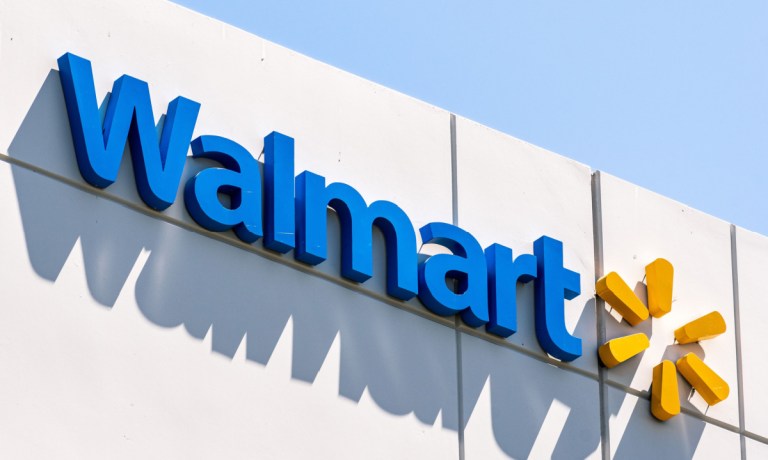Walmart’s Q1 Earnings Show Caution on Consumer Spending

Walmart reported better than expected Q1 earnings Thursday (May 16) but that’s not the most important story. The earnings announcement and subsequent analyst call showed a price-driven retailer making adjustments to its core business model in the interest of driving long-term revenue growth in the connected economy.
“I probably ignore the external environment more than you do,” CEO Doug McMillon said in answer to an analyst question. “We are focused on what we’re doing and how we earn business with customers and members. We’ve been known for price forever, but we’re increasingly known for convenience. So whether the environment is inflationary, or deflationary, whether customers have more money or less money, if we’re doing a good job on the items and prices and the service we provide, saving them money with pickup and delivery for example, we can continue to grow share.”
By the numbers, Walmart’s Q1 results exceeded expectations with a 5.7% increase in sales and a 12.9% rise in adjusted operating profit, driven by unit growth and transaction counts across all segments. Comparable-store sales in the United States rose by 3.8% from the same quarter a year earlier. As McMillon noted on the earnings call, this growth is not solely attributed to inflation. In the U.S., inflation contributed only 40 basis points to sales growth, with mid-single-digit deflation in general merchandise and low single-digit inflation in food and consumables. McMillon and CFO John David Rainey attributed the consumer spending increases to Walmart’s value proposition rather than inflation.
Walmart’s quarterly profit of $5.1 billion was triple the result a year earlier, and its stock rose more than 6% in morning trading following the results and the company’s upgraded forecast for growth this year. However, while McMillon and Rainey were non-committal on long-term prognostications about consumer spending, both noted that non-discretionary categories were down slightly for the quarter. Most of the attention was given to issues and agenda items that were a step removed from its core business model, including a mea culpa on the Walmart healthcare initiative that was scrapped on April 30, as covered by PYMNTS.
“During the quarter, we made the necessary but difficult decision to close our U.S. healthcare clinics,” McMillon said. “There were a number of aspects that were going well, and we really want to be part of the solution to improving health care in this country. But the reality is that given reimbursement rates and cost to serve, we could no longer see a path to achieving an acceptable level of profitability. And we’re committed to being disciplined with our investments.”
Among the other initiatives covered on the call:
- Sam’s Club has implemented computer vision and artificial intelligence (AI)-powered exit technology, allowing members to leave the club without standing in line for receipt checks. The walk-out technology has already been deployed in 20% of U.S. clubs and is on track to be implemented in all U.S. clubs by year-end. McMillon said the technology not only reduces wait times but also improves the accuracy of item identification, enhancing the overall member experience.
- Member Mart, Walmart’s private brand and bid for the upscale shopper, has shown significant growth, particularly in the fashion sector. High single-digit growth in Q1 underscores Walmart’s broader strategy to diversify its offerings and capture a larger market share, particularly in categories like fashion.
- Walmart’s eCommerce growth continues to be a crucial component of its success, with global eCommerce sales up 22% in Q1. This growth is driven by store-fulfilled orders and marketplace sales. The company has significantly improved its delivery capabilities, with same-day delivery available from over 6,500 locations globally. In the U.S., 4.4 billion items were delivered same-day or next-day in the past 12 months, with 20% of those delivered in under three hours.
- Walmart’s advertising business, Walmart Connect, experienced a 24% growth in Q1, driven by a 26% increase in the U.S. and a 27% growth internationally. This growth is fueled by a more than 50% increase in ad sales from marketplace sellers and a 19% rise in active advertiser counts. The expansion of Walmart Luminate into Mexico and Canada further illustrates the company’s commitment to leveraging data analytics and insights to drive advertising revenue.
During the Q&A session of the earnings call, executives provided additional insights into the company’s performance and strategy. Rainey emphasized the company’s approach to managing gross margins: “We’re having a conversation inside the company about the fact that the composition of [gross margin] is changing … business mix is changing, which does change gross margin performance.”
McMillon highlighted the company’s focus on value and convenience: “We have almost 7,000 (price) rollbacks. That’s really helping. In our food categories, we see an even larger spread between eating at home, preparing meals at home, and eating out, which we think can help Walmart over the remainder of the year.”